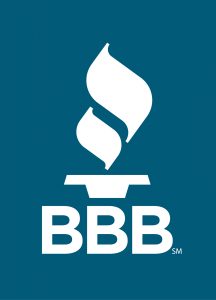BBB: Watch out for Counterfeit Checks and Fake Clients
 The Better Business Bureau is advising Hawaiʻi businesses to watch out for scammers using counterfeit traveler’s checks, as well as phone calls made by fake clients seeking credit card payment by phone for services.
The Better Business Bureau is advising Hawaiʻi businesses to watch out for scammers using counterfeit traveler’s checks, as well as phone calls made by fake clients seeking credit card payment by phone for services.
The BBB said several business owners have reported receiving counterfeit traveler’s checks as payment, many not realizing the situation until attempting to deposit the checks at their bank.
Business owners can protect themselves by learning how to identify counterfeit checks and teaching their employees how to do the same.
The BBB recommends that business owners:
- Check for a watermark: Hold the check to a light source or bright window to check for a watermark image on the face of the check. Be sure that the watermark is not visible when moved away from the light. A missing watermark or watermark that is printed on the back of the check and visible away from a light source could be a sign of a counterfeit check.
- Check for a holographic thread: Besides a watermark, there should also be a holographic thread running through the width of the check visible when held up to a light source. A real check will always reveal a silver or metallic thread with a shine to it. Counterfeit checks may contain threads, but they may appear dull or printed on the check and easily seen without the aid of light.
- Feel the check: Business owners should feel the surface of the check for texture, such as engraved or upraised printing. A real check is not perfectly smooth. Real checks will share a similar feel to paper currency.
- Check serial number: If a person is paying for a purchase with multiple checks of a similar amount, businesses should be sure to compare the serial numbers of the checks. Travelers’ checks which are sold in packs will feature a number sequence. For example, checks ending in -002 can be expected to be paired with another check close in range, such as -001 or – 003. Random serial numbers on checks of a similar denomination can be a sign of counterfeit checks.
Business owners should also insure that the customer signs the check in front of them, and that the signature matches their ID. Do not accept checks which are much larger than the amount needed for payment, or a $100 check for a $5 purchase.
The BBB also advises that businesses check the surface of the check behind the signatures for signs of smudged or missing microprinting or brown discolorations. These marks are created when someone attempts to remove existing signatures from a real traveler’s check for the purpose of passing it off as new.
If a business receives a questionable check, they can verify its authenticity by contacting the issuing company directly.
Any business encountering or needing information regarding counterfeit checks can contact the Federal Bureau of Investigation at (808) 566-4300 or Hawaiʻi’s BBB at (808) 536-6956.
Several BBBs throughout the country have received reports from businesses receiving fake client calls asking the business to charge a credit card for work they want done. The callers also request that an additional amount be forwarded to another company for other services needed.
In one instance, a lawn company received a call from someone out of state who allegedly owned property in the company’s area and wanted sod work done. They wanted to pay up front using a credit card, and also asked the company to charge an additional amount and then wire it to another company for additional work. However, the credit card was declined.
It is unclear what the end result of this scam may be. It does appear similar to overpayment and sweepstakes scams, where the scammer overpays the victim with a bad check (or stolen credit card), and then wires the additional money. The victim is left to cover expenses in these cases after the check bounces or payment fails.
Businesses reporting these calls describe the callers as having thick accents and delayed speech, as if reading from a script or using a computer to place the call. Many of the calls appear from long distance numbers, though some appear to come from local numbers and businesses. The BBB said technology makes it possible for scammers to make their calls and display information from any location or number they chose.
If a business receives a suspicious call like this, the BBB advises that they hang up and call back to verify the number and the caller. The BBB also notes that for any business, wiring money to an unknown third party is never a good idea. Wired money is hard to trace, and nearly impossible to retrieve.
If a business has received a call like this that they believe to be a scam, they should report the call, including the the number used, to the BBB.














